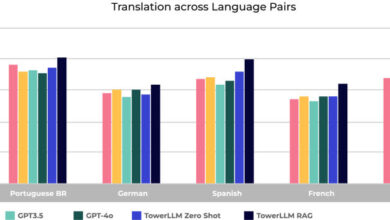Forbes 2024 AI 50 List

y spring of 2023, the massive popularity of apps like ChatGPT had prompted a mass scramble among businesses trying to implement the latest advances in generative artificial intelligence. One year later, the craze continues. In turn, a new tech economy has emerged to help businesses develop and deploy AI-powered apps. That’s reflected by the makeup of Forbes’ sixth annual AI 50, produced in partnership with Sequoia and Meritech Capital, which recognizes the most promising privately-held artificial intelligence companies.
The use cases are wide-ranging and far-reaching, as immediately evident from the three largest companies on the list in terms of valuation. Model maker OpenAI ($86 billion) counts customers from Morgan Stanley to the government of Iceland, while its rival Anthropic ($18.4 billion, as Forbes reported) is used by Bridgewater and the Boston Consulting Group. Databricks ($43 billion) sells its data analytics and AI deployment software to Shell and the United States Postal Service. For the startups on AI 50, the technology has evolved from capturing customers’ imaginations to capturing billions of dollars in collective revenue.
They have also captured the attention of Silicon Valley investors at a time when the fundraising market continues to pose difficulty for other once-hot sectors. The companies on this year’s AI 50 have raised a total of $34.7 billion in funding. Nearly one-third of that total comes from OpenAI, thanks to some $10 billion from Microsoft. Much more comes from other ascendant AI research firms like Anthropic ($7.7 billion raised), Cohere ($445 million) and Mistral AI ($528 million). Underlying them are a slew of infrastructure tools that are helping companies to implement the technology. Many, like Baseten, LangChain and Unstructured, make their debuts on AI 50 after celebrating booming growth metrics in 2023.
Other forms of AI development are seeing traction too. Take Anduril, which has raised $2.8 billion for defense tech; Insitro, which stockpiled a $643 million cash pile for drug discovery; or Figure AI, which raised $754 million to create humanoid robots. Then, there are companies that are seamlessly layering the latest advances in AI into their own apps. Abridge uses voice recognition and language summarization to deliver automated documentation of your visit to the doctor’s office. Notion is making inroads into uprooting Google Workspace or Microsoft Office, while Perplexity wants to reinvent the search engine. (Read more about Notion and Perplexity in our accompanying feature stories.)
The artificial intelligence sector has never been more competitive. Forbes received some 1,900 submissions this year, more than double last year’s count. Applicants do not pay a fee to be considered and are judged for their business promise and technical usage of AI through a quantitative algorithm and qualitative judging panels. Companies are encouraged to share data on diversity, and our list aims to promote a more equitable startup ecosystem. But disparities remain sharp in the industry. Only 12 companies have women cofounders, five of whom serve as CEO, the same count as last year. For more, see our full package of coverage, including a detailed explanation of the list methodology, videos and analyses on trends in AI.
In rare instances where the company did not disclose information, Forbes uses data provided by PitchBook and Crunchbase.
_________________
Operational Lead: Elisabeth Brier
Reporters: Rashi Shrivastava, Lauren Orsini and Leah Rosenbaum.
Data Partners: Konstantine Buhler (Sequoia), Rob Ward (Meritech) and Dan Knight (Meritech).
Disclosure: The 2024 AI 50 includes companies that have taken investment from Sequoia, which helped create this list. Sequoia has publicly disclosed investments in Cresta, ElevenLabs, Glean, Harvey, Hugging Face, Kumo.AI, LangChain, Notion, OpenAI, Replicate and Sierra; Meritech is not an investor of any companies on the list.



